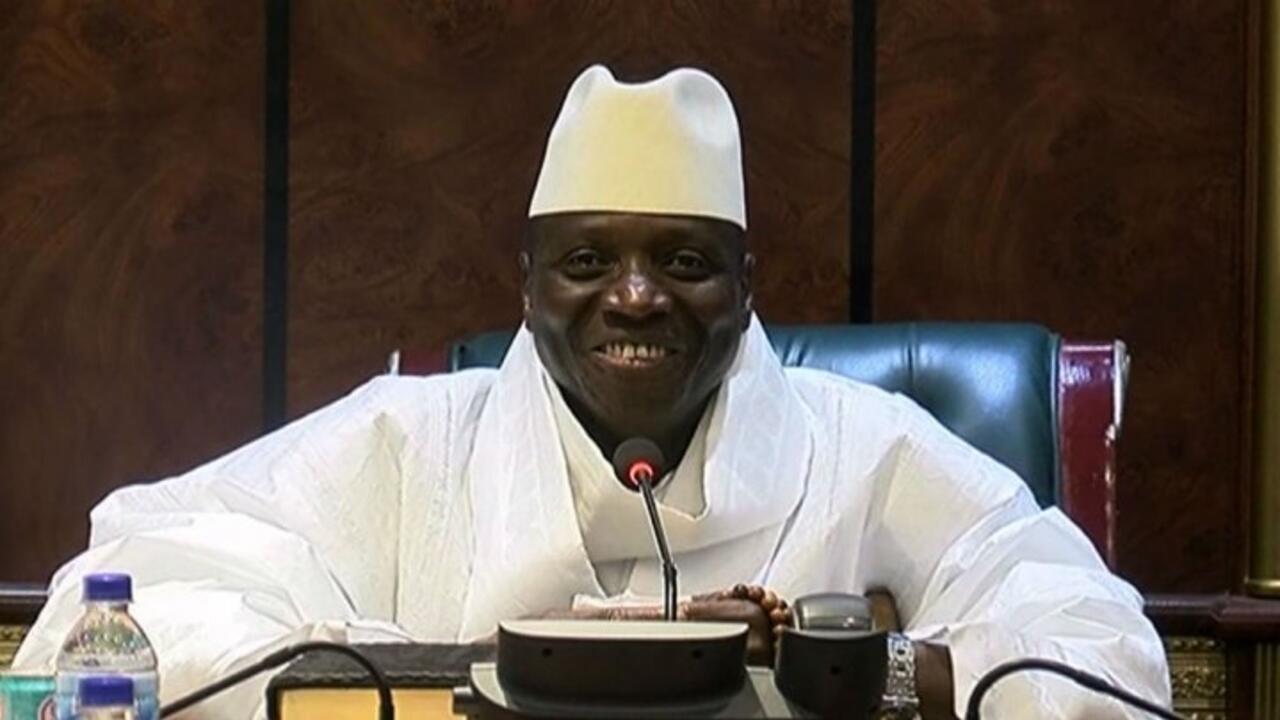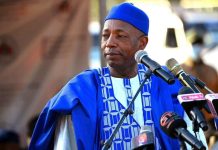By Kebeli Demba Nyima, Atlanta, USA
Africa-Press – Gambia. In Paradise lost, the great English poet John Milton imagined a fallen angel, hurled from Heaven, staring across the burning plains of Hell and whispering to himself, “Better to reign in Hell than serve in Heaven.” The line, immortalised in Book I of Milton’s great epic, haunted the imagination of Victorian England as the supreme expression of pride and rebellion. It was the age when poets, preachers, and philosophers wrestled with the contrast between ambition and humility, empire and obedience. In that blazing scene, Milton’s Satan awakens upon the molten floor of perdition, his wings singed, his throne shattered, yet his pride intact. The angels who once sang with him now lie scattered in torment, but he refuses to bow his head. Gazing into the endless fire, he convinces himself that even in damnation there can be dominion, that the act of ruling, no matter how empty, redeems the loss of Heaven. When he declares, “Better to reign in Hell than serve in Heaven,” the words ring with both grandeur and futility: the conviction that power, even in ruin, is preferable to submission in grace. Milton’s vision, filtered through the moral seriousness of the Victorian age, came to symbolise the tragic splendor of defiance and the way a man’s will can harden into his own prison. In that single moment, the fallen angel becomes the portrait of a ruler who mistakes his fall for a coronation.
In the way of all proud beings, the fallen angel’s tragedy is not his punishment, but his persistence. He refuses to believe that the war is over. He persuades his followers that their exile is temporary, their banishment but a test of faith, and that Heaven, in its weakness, will one day regret their loss. There, amid the sulphurous glow, Milton’s Satan fashions a counterfeit court; a parody of the one he defied and crowns himself anew. The scene is both majestic and pitiful: an emperor without empire, surrounded by the ruins of his rebellion, still declaring himself lord of all he surveys. It is precisely this illusion of continuity, this desperate theatre of command, that transforms Milton’s poetry into prophecy. The fire of Hell, to him, is not torment but a stage; a place where he may perform sovereignty, even if only before the shadows that remain loyal.
Centuries later, across a different empire and under another sky, the echo of that defiance found its human counterpart in Yahya Jammeh. When he lost the 2016 election, it was not merely power that slipped from his grasp, but his very conception of self. For two decades he had ruled, like Milton’s angel, through spectacle and superstition, wrapping terror in divine language and convincing himself that to rule was his birthright. When the verdict of the ballot stripped away the illusion, he could not kneel before truth. He declared the results void, not because he believed in justice, but because he could not imagine life without command. And when at last the soldiers, ministers, ambassadors, and even the marabouts he once fed turned their gaze elsewhere, he began to read the political weather like an astrologer consulting a broken compass. What followed was pure theatre, the sort that would have amused Shakespeare himself; a deluded king raging at the heavens while the stagehands quietly lowered the curtain. Ecowas troops brought the final act, marching him out of Banjul like a disgraced player removed from the stage of history while the audience, long exhausted, refused even to clap.
Exile, for Jammeh, became his Hell and his kingdom at once. From the guarded serenity of Equatorial Guinea, he began to reconstruct his lost dominion through voice notes and recordings, his tone carrying that same Miltonic echo: better to rule the faithful few in exile than be forgotten in freedom. His words travel across the ocean and find their way to Kanilai, his former Eden, now hollowed by memory. There, his followers — weary of democracy’s dullness — gather in the heat to listen. They stand beneath the same sun that once rose over his parades, hearing not the frailty of a man in exile but the ghost of power reborn. The loudspeakers crackle; the crowd cheers; and for a brief moment, illusion triumphs again. He has succeeded in brainwashing many Gambians into buying his fantasy that he will return in November.
Yet, to the sober eye, the scene is both absurd and tragic. The once-feared ruler, now reduced to a disembodied voice, preaches loyalty to people who cannot touch him. The defiance in his tone masks the panic of a man staring at irrelevance. Like Milton’s Satan surveying the flames, Jammeh stares across the burning plains of his past: the party loyalists, the crumbling myths, the vanishing fear and convinces himself that he still reigns. His kingdom now consists only of memory, his courtiers of nostalgia, and his palace of noise. Still, he performs the part because to stop speaking would be to admit the silence.
And thus, in the great theatre of history, Yahya Jammeh becomes one of Milton’s children; a modern Lucifer wrapped not in fire but in vanity. His tragedy, like that of the angel, lies not in falling but in refusing to understand the fall. For even now, as he calls out to The Gambia through the static of his own exile, one hears the same old whisper of defiance: Better to reign in exile than to live forgotten among men.
But if Jammeh’s delusion is pitiful, Barrow’s disposition is almost playful, and not the kind of play that amuses for long. Barrow and his government are playing with fire, and that fire will burn them for underestimating the capability of the enemy. In the intelligence domain, Jammeh’s activities are not harmless nostalgia; they are early warning signs. Intelligence is useless when applied after the event. True intelligence is proactive, not reactive. The state should not wait for Jammeh and his criminal network to launch their mischief before attempting to neutralise them at the cost of human life.
It does not take MI6 in London, the CIA in Langley, or Russia’s FSB in Moscow to see that Jammeh’s shadow still plots to seize power by force. A dictator in exile who still commands loyalty within the barracks is a high-value target, one who must be closely monitored along with his allies, just as one would track a terrorist cell. Jammeh himself has declared on multiple occasions that he will return to “rescue the country” and complete his “unfinished business.” Why, then, is the SIS or the Army’s G2 not doing its homework?
Jammeh retains no right to hold political rallies. It is an irony, and a national disgrace, that a man responsible for decades of terror can broadcast messages and mobilize crowds without a permit, while peaceful citizens are silenced for less. Not even the UDP has been allowed to assemble gatherings of such magnitude. Until the Barrow government confronts Jammeh’s threat directly and decisively, this posture of hesitation remains both reckless and foolish.
For More News And Analysis About Gambia Follow Africa-Press






